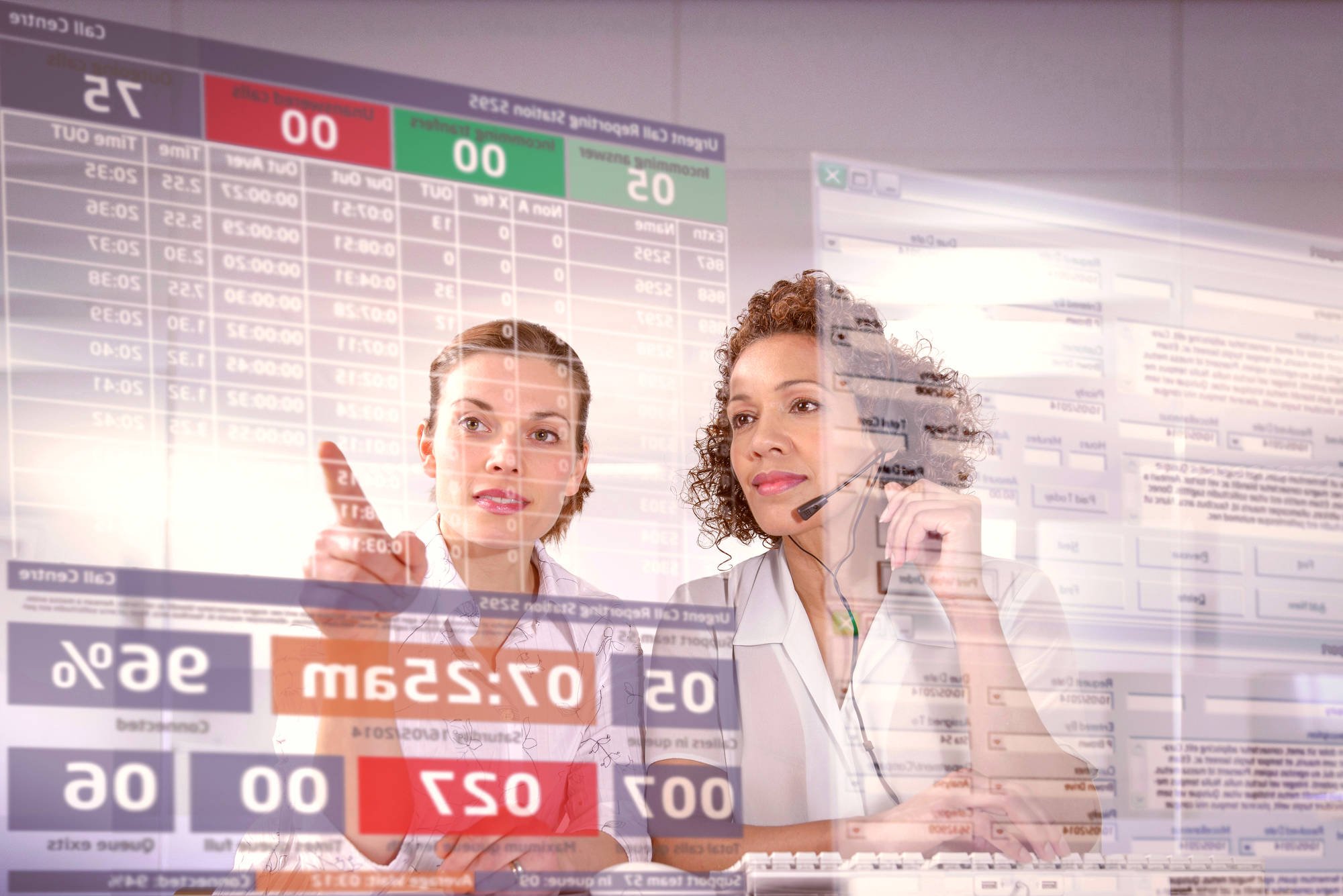-
Audit approach overview
Our audit approach will allow our client's accounting personnel to make the maximum contribution to the audit effort without compromising their ongoing responsibilities
-
Annual and short period audit
At P&A Grant Thornton, we provide annual and short period financial statement audit services that go beyond the normal expectations of our clients. We believe strongly that our best work comes from combining outstanding technical expertise, knowledge and ability with exceptional client-focused service.
-
Review engagement
A review involves limited investigation with a narrower scope than an audit, and is undertaken for the purpose of providing limited assurance that the management’s representations are in accordance with identified financial reporting standards. Our professionals recognize that in order to conduct a quality financial statement review, it is important to look beyond the accounting entries to the underlying activities and operations that give rise to them.
-
Other Related Services
We make it a point to keep our clients abreast of the developments and updates relating to the growing complexities in the accounting world. We offer seminars and trainings on audit- and tax-related matters, such as updates on Accounting Standards, new pronouncements and Bureau of Internal Revenue (BIR) issuances, as well as other developments that affect our clients’ businesses.
-
Tax advisory
With our knowledge of tax laws and audit procedures, we help safeguard the substantive and procedural rights of taxpayers and prevent unwarranted assessments.
-
Tax compliance
We aim to minimize the impact of taxation, enabling you to maximize your potential savings and to expand your business.
-
Corporate services
For clients that want to do business in the Philippines, we assist in determining the appropriate and tax-efficient operating business or investment vehicle and structure to address the objectives of the investor, as well as related incorporation issues.
-
Tax education and advocacy
Our advocacy work focuses on clarifying the interpretation of laws and regulations, suggesting measures to increasingly ease tax compliance, and protecting taxpayer’s rights.
-
Business risk services
Our business risk services cover a wide range of solutions that assist you in identifying, addressing and monitoring risks in your business. Such solutions include external quality assessments of your Internal Audit activities' conformance with standards as well as evaluating its readiness for such an external assessment.
-
Business consulting services
Our business consulting services are aimed at addressing concerns in your operations, processes and systems. Using our extensive knowledge of various industries, we can take a close look at your business processes as we create solutions that can help you mitigate risks to meet your objectives, promote efficiency, and beef up controls.
-
Transaction services
Transaction advisory includes all of our services specifically directed at assisting in investment, mergers and acquisitions, and financing transactions between and among businesses, lenders and governments. Such services include, among others, due diligence reviews, project feasibility studies, financial modelling, model audits and valuation.
-
Forensic advisory
Our forensic advisory services include assessing your vulnerability to fraud and identifying fraud risk factors, and recommending practical solutions to eliminate the gaps. We also provide investigative services to detect and quantify fraud and corruption and to trace assets and data that may have been lost in a fraud event.
-
Cyber advisory
Our focus is to help you identify and manage the cyber risks you might be facing within your organization. Our team can provide detailed, actionable insight that incorporates industry best practices and standards to strengthen your cybersecurity position and help you make informed decisions.
-
ProActive Hotline
Providing support in preventing and detecting fraud by creating a safe and secure whistleblowing system to promote integrity and honesty in the organisation.
-
Accounting services
At P&A Grant Thornton, we handle accounting services for several companies from a wide range of industries. Our approach is highly flexible. You may opt to outsource all your accounting functions, or pass on to us choice activities.
-
Staff augmentation services
We offer Staff Augmentation services where our staff, under the direction and supervision of the company’s officers, perform accounting and accounting-related work.
-
Payroll Processing
Payroll processing services are provided by P&A Grant Thornton Outsourcing Inc. More and more companies are beginning to realize the benefits of outsourcing their noncore activities, and the first to be outsourced is usually the payroll function. Payroll is easy to carve out from the rest of the business since it is usually independent of the other activities or functions within the Accounting Department.
-
Our values
Grant Thornton prides itself on being a values-driven organisation and we have more than 38,500 people in over 130 countries who are passionately committed to these values.
-
Global culture
Our people tell us that our global culture is one of the biggest attractions of a career with Grant Thornton.
-
Learning & development
At Grant Thornton we believe learning and development opportunities allow you to perform at your best every day. And when you are at your best, we are the best at serving our clients
-
Global talent mobility
One of the biggest attractions of a career with Grant Thornton is the opportunity to work on cross-border projects all over the world.
-
Diversity
Diversity helps us meet the demands of a changing world. We value the fact that our people come from all walks of life and that this diversity of experience and perspective makes our organisation stronger as a result.
-
In the community
Many Grant Thornton member firms provide a range of inspirational and generous services to the communities they serve.
-
Behind the Numbers: People of P&A Grant Thornton
Discover the inspiring stories of the individuals who make up our vibrant community. From seasoned veterans to fresh faces, the Purple Tribe is a diverse team united by a shared passion.
-
Fresh Graduates
Fresh Graduates
-
Students
Whether you are starting your career as a graduate or school leaver, P&A Grant Thornton can give you a flying start. We are ambitious. Take the fact that we’re the world’s fastest-growing global accountancy organisation. For our people, that means access to a global organisation and the chance to collaborate with more than 40,000 colleagues around the world. And potentially work in different countries and experience other cultures.
-
Experienced hires
P&A Grant Thornton offers something you can't find anywhere else. This is the opportunity to develop your ideas and thinking while having your efforts recognised from day one. We value the skills and knowledge you bring to Grant Thornton as an experienced professional and look forward to supporting you as you grow you career with our organisation.
The Bureau of Internal Revenue (BIR) recently issued Revenue Regulations (RR) No. 9-2021 which imposed 12% Value-Added Tax (VAT) on certain transactions that were previously taxed at 0%. The RR took effect on June 27, 2021, 15 days from its publication.
RR No. 9-2021 was issued to implement the provisions of Republic Act (RA) No. 10963 or the Tax Reform and Acceleration and Inclusion Act (TRAIN) which provide that certain transactions previously considered zero-rated shall be subject to 12% VAT upon satisfaction of two conditions: (1) the successful establishment and implementation of an enhanced VAT refund system, and that (2) all pending VAT refund claims as of Dec. 31, 2017 shall be fully paid in cash by Dec. 31, 2019. RR 9-2021 declared that the conditions set forth by the TRAIN Law have been fully satisfied. As such, the following sales of goods or properties are now subject to 12% VAT:
1. Sale of raw materials or packaging materials to a non-resident buyer for delivery to a local export-oriented enterprise;
2. Sale of raw materials or packaging materials to export-oriented enterprise whose export sales exceed 70% of total annual production; and
3. Those considered export sales under Executive Order (EO) No. 226, or the Omnibus Investment Code of 1987, and other special laws (Section 106 (A) (2) (a) (5) of the Tax Code, as amended).
From the foregoing, the sale of goods or properties by local suppliers to exporters IS now subject to 12% VAT.
A big concern, however, has been raised by taxpayers whose exemptions emanate from special laws, such as those with exemptions granted by the Philippine Economic Zone Authority (PEZA), Board of Investments (BoI), Subic Bay Metropolitan Authority (SBMA), and the Clark Development Authority (CDA), among others, on the VAT treatment of their local purchases of goods or properties.
RR 9-2021 provides that those considered export sales under EO 226 and other special laws are now subject to 12% VAT. Section 3 of the same RR, on the other hand, also provides the VAT zero rating of sales to persons or entities whose exemption under special laws or international agreements, to which the Philippines is a signatory, effectively subject such sales to a zero rate. This is also found in Section 106 (A) (2) (b) of the Tax Code, as amended. Thus, there is confusion on whether RR 9-2021 removed the zero rating of goods sold to entities exempt under special laws such as PEZA registered entities.
In the 2004 case of Contex Corporation vs. Commissioner of Internal Revenue, the Supreme Court (SC) considered that sales transactions with SMBA, CDA, and PEZA entities, being governed by special laws, are effectively subject to zero rate. In another case (CIR vs. Seagate, 2005), the SC held that sales made by a VAT-registered person in the customs territory to a PEZA-registered entity are considered exports to a foreign country. The SC anchored its ruling on the fiction that an ecozone is a foreign territory. The SC considered that sales to ecozones are export sales and thus, subject to a zero-rate pursuant to Section 106 (A)(2)(a)(5) of the Tax Code.
The Philippine VAT system adheres to the Cross-Border Doctrine which provides that no VAT shall be imposed to form part of the cost of goods destined for consumption outside of the territorial border of the taxing authority. Hence, actual export of goods and services from the Philippines to a foreign country must be free of VAT; while, those destined for use or consumption within the Philippines are subject to 12% VAT.
In RR No. 4-07, it was clarified that the sale of goods to special economic zones and freeport zones is considered export sales under Section 106 (A)(2)(a)(5) the Tax Code.
Thus, prior to the passage of TRAIN, these transactions were subject to zero VAT. With the enactment of the TRAIN Law and the fulfillment of conditions outlined under this law, these transactions are now subject to 12% VAT.
It is worthy to note that the President vetoed the provision under the TRAIN Law which treats the sale of goods to registered enterprises within a separate custom territory as provided under special laws and those registered enterprises within tourism economic zones as export sales subject to the zero rate. With this veto, we see the clear intent of the Executive to remove the zero-rating on the local purchases of goods of PEZA-registered entities and those entities enjoying similar incentives.
In view of the above discussions, it can be gleaned that local purchases of goods or properties of PEZA-registered entities and those entities having similar exemptions under special laws are now subject to 12% VAT.
However, there is an issue on the retention of VAT zero-rating in relation to the recently passed Corporate Recovery and Tax Incentives for Enterprises (CREATE) Law. Section 5 of Rule 18 of the recently-signed Implementing Rules and Regulations (IRR) for fiscal incentives under the CREATE Law provides that VAT zero-rating on local purchases of registered business enterprises (RBEs) may still apply provided such locally-purchased goods and services are directly and exclusively used in the registered project or activity of the RBE during the period of registration of the registered project/activity of the enterprise.
The direct and exclusive use in the registered project or activity refers to raw materials, inventory, supplies, equipment, goods, services and other expenditures necessary for the registered project or activity without which the registered project or activity cannot be carried out.
Considering that the TRAIN Law, through RR 9-2021, effectively removed the zero-rating of goods sold to PEZA-registered entities, and that the IRR of the CREATE Law provides that the VAT zero-rating may still apply, it is now deemed necessary for the BIR to issue clarifications or guidelines on the proper VAT treatment of the transactions mentioned. A clarification that will harmonize the provisions on VAT zero-rating under the TRAIN Law and CREATE Law will be much appreciated by taxpayers.
After all, the Philippines adheres to the principles of sound taxation, particularly in terms of administrative feasibility, which means that tax laws and regulations must be capable of being effectively enforced with the least inconvenience to the taxpayer.
Let’s Talk Tax is a weekly newspaper column of P&A Grant Thornton that aims to keep the public informed of various developments in taxation. This article is not intended to be a substitute for competent professional advice.
Neptali G. Maroto is an associate of Tax Advisory & Compliance division of P&A Grant Thornton, the Philippine member firm of Grant Thornton International Ltd.
As published in BusinessWorld, dated 29 June 2021



